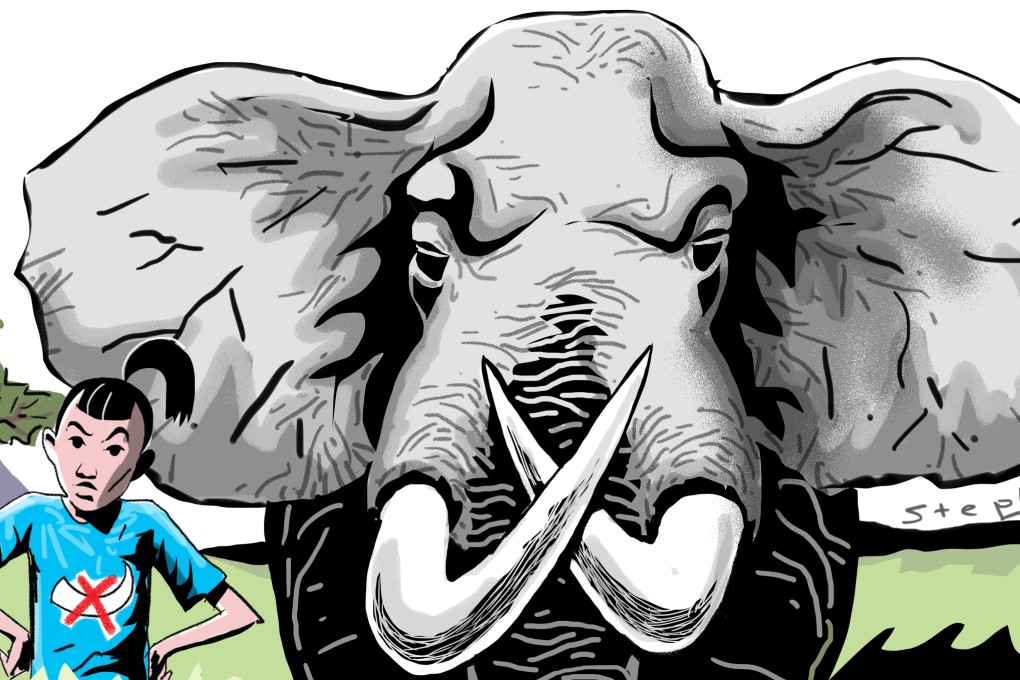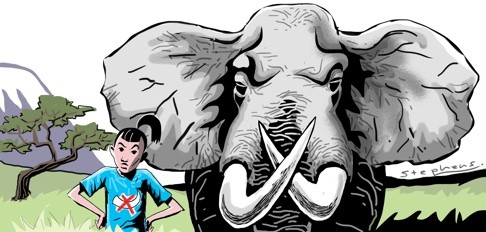Banning ivory trade is only one of many actions China can take to save Africa’s wildlife
Christopher Lee says it’s about time for conservation issues to be included on the agenda of the growing China-Africa cooperation forum


READ MORE: Elephants are dying because of Hong Kong’s failure to tackle illegal ivory trade, report says
But are there additional things that China could be doing to protect Africa’s wildlife? Trade between China and the African continent has grown quickly in the past decade; it was valued at more than US$200 billion last year. The WeChat messaging system from Tencent is used by millions of young Africans. Zendai is developing multi-purpose property projects in South Africa. The investments China is making in Africa and the operations of Chinese companies on the ground are transforming the continent at an unprecedented rate.

This change is happening quickly. The positives of this are better infrastructure, improved trade relations between China and various African governments, access to technology, higher standards of living for Africans and growing economies. The negatives of this fast-paced change, at least from a conservationist’s perspective, are the irrevocable loss of biodiversity and the undermining of ecosystem services needed to sustain this growth. Roads and railways bisect wildlife corridors and break up habitats. Dams alter the biological and physical properties of river systems.
READ MORE: China main reason Africa is losing war to stop wipe-out of rhinos and elephants
If we are to save Africa’s elephants, rhinos, lions and other animals, or protect Africa’s wild landscapes for the future, our policymakers need to begin addressing conservation issues head on. It cannot always be left to the conservation organisations on the ground to fight for the future of wildlife.
These issues must be prioritised and addressed at the highest levels of our governments. It is in these high-level discussions and agreements that the fate of the continent and its wildlife are being decided. We firmly believe that conservation and economic modernisation can coexist in Africa.
